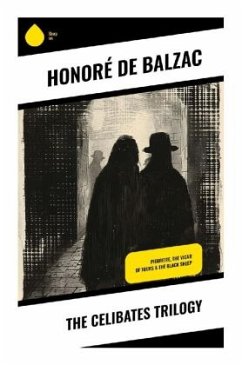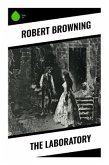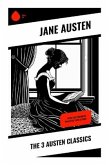Honoré de Balzac's "The Celibates Trilogy" intricately explores the interconnected lives of characters grappling with the complexities of love, desire, and societal norms in 19th-century France. Comprising three novellas: "Eve and David," "The Unknown Masterpiece," and "The Girl with the Golden Eyes," the trilogy presents a vivid panorama of Parisian life during the Restoration era. Balzac's trademark realism and rich character development are evident, as he deftly interweaves themes of ambition and moral conflict against the backdrop of a rapidly changing society. His literary style is marked by detailed descriptions and psychological depth, revealing the inner turmoil experienced by his characters in their quest for intimacy and fulfillment. Balzac, a prolific writer and keen observer of his time, often drew inspiration from his own experiences in Parisian society and his fascination with the social dynamics of his day. His background in law and extensive professional interactions provided him with a unique insight into both the private and public spheres of life. This cross-section of society served as fertile ground for Balzac's exploration of celibacy and passionate attachment, mirroring his own tumultuous relationships. Readers seeking a profound examination of human relationships will find "The Celibates Trilogy" an illuminating journey through the intricacies of love and solitude. Balzac's nuanced storytelling not only captivates but also encourages reflection on the nature of desire and commitment. This trilogy is highly recommended for anyone interested in classic literature and the psychological exploration of characters.
Bitte wählen Sie Ihr Anliegen aus.
Rechnungen
Retourenschein anfordern
Bestellstatus
Storno








